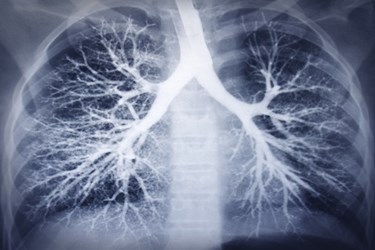AstraZeneca, Qiagen Partner For IRESS Companion Test In NSCLC

Netherlands-based sample and assays technologies company Qiagen announced that it has entered into partnership with British pharma giant AstraZeneca for the development and marketing of a liquid biopsy-based companion diagnostic for Iressa, AstraZeneca’s drug for non-small cell lung cancer (NSCLC).
Iressa is an inhibitor of epidermal growth factor receptor-tyrosine kinase (EGFR-TK) that works to block signals stimulating cancer cell survival and growth. The partners said they intend to develop a test that detects 21 EGFR mutations to screen patients that are likely to get the most out of the therapy. The diagnostic kit will guide medical treatment of NSCLC patients when tumor tissue is not available for collection.
Mondher Mahjoubi, SVP of Global Product Strategy for Oncology at AstraZeneca, said, “By combining AstraZeneca's expertise in lung cancer with Qiagen's diagnostic capabilities, we have the potential to transform the way specific tumor types are identified and treated. The use of circulating tumor DNA testing will allow doctors to target the individual needs of each patient quickly and accurately.”
“We are very pleased to collaborate with AstraZeneca in developing this new tool to improve life for lung cancer patients. This collaboration will further expand Qiagen's rapidly growing portfolio of liquid biopsy solutions for personalized healthcare which paves a path for patient monitoring using blood tests for future Qiagen therascreen companion diagnostics,” said Peer M. Schatz, CEO of Qiagen. Earlier this month the company launched 14 new cancer gene panels that will help in pre-analytic solutions for next generation sequencing.
The new project with AZ continues the master framework agreement signed by both companies last year. The new diagnostic kit will be designed to run on Qiagen’s automated Rotor-Gene Q system. It will be based on liquid biopsy samples from patients with NSCLC instead of invasive surgical collection of tissue samples.
Aside from Qiagen, AstraZeneca also entered into agreement with Roche to develop another companion diagnostic for AZ’s investigational successor to Iressa, labeled AZD9291.
